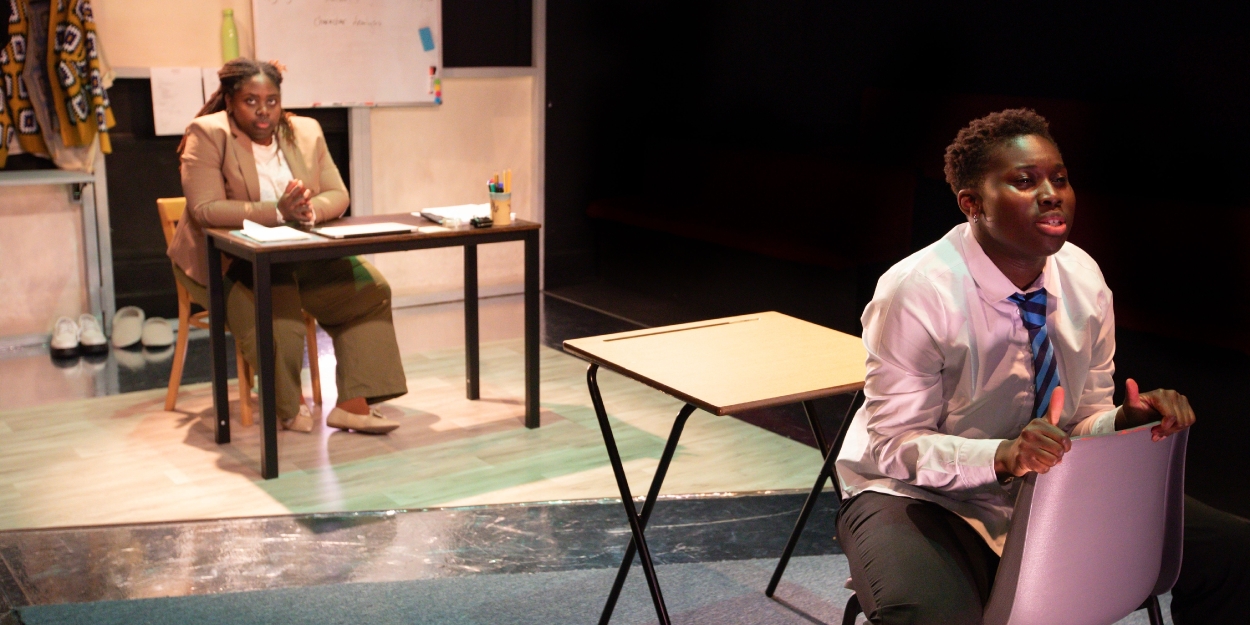Review: BELLY OF THE BEAST, Finborough Theatre
A searing look at identity politics in education

![]() In Saana Sze's provocative new play Belly of the Beast, the intimate setting of the Finborough Theatre becomes a pressure cooker for exploring the fraught intersection of identity politics and educational institutions. This world premiere, directed by Dadlow Lin, strips away theatrical artifice to focus on the raw humanity of its characters, delivering a powerful commentary on how schools struggle to adapt to evolving understandings of gender identity.
In Saana Sze's provocative new play Belly of the Beast, the intimate setting of the Finborough Theatre becomes a pressure cooker for exploring the fraught intersection of identity politics and educational institutions. This world premiere, directed by Dadlow Lin, strips away theatrical artifice to focus on the raw humanity of its characters, delivering a powerful commentary on how schools struggle to adapt to evolving understandings of gender identity.

Photo Credit: Ali Wright
The play follows Martha (Sam Bampoe-Parry), a non-binary student navigating a school system that seems designed to exclude them at every turn. Bampoe-Parry's portrayal is particularly striking in the opening scenes, where they frantically attempt to conceal involvement in a crime. Their delivery captures the authenticity of youth through carefully crafted intonation and believable body language, drawing immediate empathy from the audience.
Parallel to Martha's story runs that of their teacher (Shiloh Coke), whose own non-binary identity creates professional complications in a system that demands conformity to traditional gender markers like "Miss" or "Sir." While Coke's performance conveys admirable stoicism, their occasionally unclear enunciation slightly diminishes the impact of key moments.
Sze's script cleverly weaves in literary references that deepen the play's themes. Allusions to Macbeth's struggle with identity and appearance versus reality mirror Martha's own journey, while references to Norman Bates serve as a sharp commentary on society's tendency to pathologise gender nonconformity. These connections add intellectual depth without becoming heavy-handed.

Photo Credit: Ali Wright
The play's examination of educational hierarchies is particularly effective, revealing how layers of bureaucracy can distance decision-makers from the real-world impact of their policies. Through sharp dialogue and well-observed details, Sze exposes how even well-meaning institutional structures can perpetuate harm through their inflexibility.
While Belly of the Beast tackles serious issues, it avoids becoming didactic through its judicious use of humour and moments of genuine warmth. The audience respond strongly to this balance, with laughter punctuating the more intense moments of drama, creating a rhythm that kept the piece engaging throughout its runtime.
Some might compare this work to educational theatre pieces of the past, but Belly of the Beast transcends that category through its artistic ambition and emotional complexity. While it certainly raises awareness about important issues, it does so through compelling storytelling rather than simple message-delivery.
For audiences seeking theatre that combines social relevance with artistic merit, Belly of the Beast offers a thought-provoking evening that will likely spark important conversations long after the curtain falls. It's a significant new work that deserves attention not just for its timely themes, but for the skill with which it presents them.
The Belly of the Beast is at the Finborough Theatre until 1 February
Photo Credits: Ali Wright
Reader Reviews

Videos

